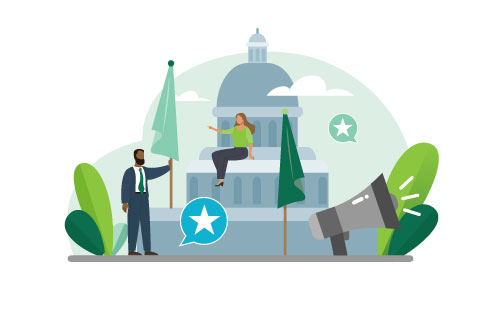Today is International Women’s Day, a global occasion to celebrate the achievements and contributions of women in all walks of life. As I reflect on this day, I ask myself: are we doing enough to ensure our boardrooms and senior leaders reflect the diversity of our society and our customers? And how does diversity in leadership affect the quality and impact of our customer service?
The data tells a mixed story. On the one hand, noteworthy progress has been made in increasing the number of women on boards and in senior roles over the past decade. Women hold 42% of board roles across the FTSE 100, up from 12.5% just over ten years ago.
This puts the UK in second place just behind France and ahead of Norway for female representation on boards; both countries that have introduced mandatory quotas for diversity. This is great progress and I commend the organisations that have embraced this voluntary, business-led approach to improving gender diversity.
Before we pat ourselves too hard on the back however, there is clearly more to be done. There are still gender gaps in pay, promotion, and recognition across sectors. All this combined with the stress, strain, and media attention – along with threats and abuse from the public – that those in leadership deal with regardless of gender, that strain, risks putting off some of the most capable people taking on or staying in those roles.
Diversity and customer service
When it comes to customer service, diversity is not just a matter of fairness and equality. It is also a strategic advantage, and a key factor in enhancing the service offering.
To deliver great customer service in our increasingly complex and polarised society, we must understand our customers. Doing this requires a breadth of experience, combined with empathy and data. In a world where the transactional elements of most roles are increasingly being automated, empathy is arguably the most important skill a customer service professional needs.
Greater diversity tends to bring with it a wider range of skills, perspectives and experiences. This can enhance problem-solving and innovation, helping the organisation adapt to change and anticipate customer needs and expectations – as well as creating a more rounded skillset for our future leaders.
Looking to the future
While today is obviously a moment for reflection, the importance of gender diversity in the boardroom should not be forgotten once the clock strikes midnight. And it will certainly be a topic for discussion at The Institute’s Annual Conference taking place next week.
The four pillars of our service nation – namely, customer service as a business asset, as a respected profession, as a driver for sustainable growth, and most importantly as a catalyst for a fairer society – cannot be implemented or upheld by our nation’s business leaders without a diverse set of views, opinions, and visions. This is why inclusivity is so important, as well as both acknowledging our successes and admitting that there is more work to be done.
I look forward to welcoming many of you to the Institute’s Annual Conference, where we will continue this important conversation. Because by working together, I believe we can take the right steps to build the Service Nation that we all aspire to be a part of.



